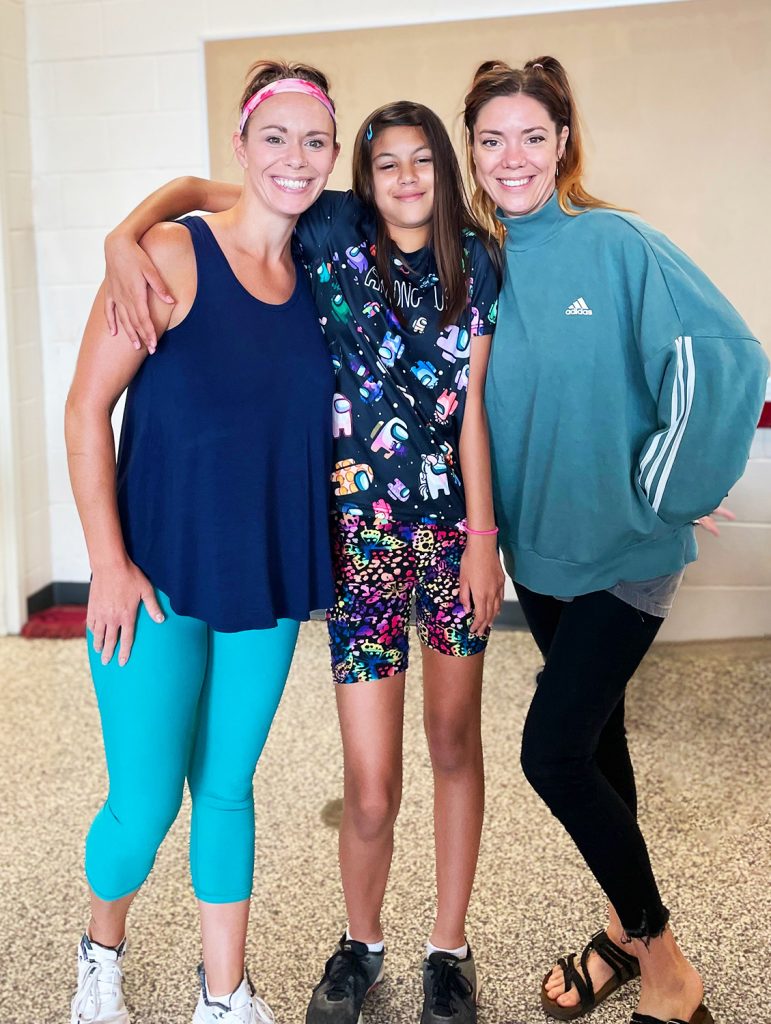Jenna Doran: Interpreting for Hard of Hearing and Deaf Children

As a former school psychologist, I was privileged to work with children with special needs, including children with hearing disabilities. The Individuals with Disabilities Education Act states that, based on assessment, interpreting services for deaf and hard of hearing students should be provided effectively and be appropriate for their needs and skill level. For many students, interpreters are the primary support service providers.
Jenna Doran is one such provider, working with children on-site in schools in Moline, Illinois. Although interpreters are neither trained nor qualified as tutors, nor Deaf Education-related specialists, nor counselors, nor teachers, they do facilitate communication between teachers and students, enabling the students to integrate more easily into the classroom. Jenna’s work is vital to the education, socialization and well-being of her students.
Susan: Thank you for speaking with me. First, please tell me what motivation or inspiration led you to choose this career?
Jenna: The first time I saw an interpreter was at a magic show at Adventureland Park. I was eight. I was transfixed on the interpreter for the remainder of the show. From that point on, for every holiday and birthday I received some gift relating to sign language. I grew up in a small town—Grinnell, Iowa—and had never met a Deaf person before. I moved to Davenport, Iowa when I was 20.
I was waiting tables at Texas Roadhouse, where a group of Deaf people came in regularly; I wanted to communicate with them in their language. This is when I started researching college programs and, as it turned out, the only interpreting program offered in Iowa was in Davenport. My first teachers were completely Deaf and one of them happened to be in the group of four that frequented Texas Roadhouse. Two years ago, I volunteered at Adventureland Deaf Days, and then I was interpreting the magic show! I love complete circles!
Susan: Can you describe the training and education you’ve had to meet the requirements for this work?
Jenna: I completed a three-year interpreting program at Scott Community College, with the last semester dedicated to practicum, where we interpreted for Deaf adults in the community and also at a two-week stint at an elementary school. After graduation, I took and passed the Educational Interpreting Performance Test (EIPA) with a 3.5 or higher. (This is the requirement in the states of Iowa and Illinois. Other states have other requirements. To keep my license current, I must meet the required continuing education credits by attending workshops, book studies and volunteering within the Deaf community.
Susan: Please describe the work you do with students, parents and teachers.
Jenna: The relationship with the students varies on their hearing loss. The past two students I was with were completely Deaf and both in the mainstream classroom. I would interpret everything the teachers said, taught, as well as interpret the side conversations from their hearing peers. Having a good relationship with all the students and teachers is imperative so to not isolate the Deaf student even more than they already are. Luckily these two students went to the same school, so I wasn’t the only person they had to talk with. Often you find that as the interpreter, you are the only person they can communicate with in their native language. Ninety percent of Deaf children are born to hearing parents and the percentage of hearing parents that learn sign language to communicate with their children is very low, so not only can these kids feel isolated at school but also at home.
Interpreting also means voicing for these Deaf children, so my job entails knowing the slang that kids are using and what is popular with their age group. If I am voicing for young kids and using terms my grandma still uses, hearing peers might find it hard to connect with the Deaf students. The student I am working with now is hard of hearing and can hear quite well with hearing aids. However, his issues stem from how his peers view him with his hearing aids on. He is only in first grade, so we are working on self-advocacy and communicating when he wants to take his hearing aids off and just watch me. I have also attempted fake hearing aids for myself and introduced this student to other people that also wear hearing aids in hopes that this help with his self-image.
Working with teachers, I am an advocate for the Deaf student but also encourage self-advocacy from students at the proper age, like asking for what they need: “I need to be moved closer to the front so I can see the interpreter,” or “Please add closed captions to this video” etc. It is often the first time for the teacher to meet a Deaf person or work with an interpreter, but I find that by the end of the school year, teachers’ eyes are more open to Deaf culture—which I think is really cool! As far as working with parents goes, the teachers mainly keep in contact with them, but I do like to fill the parents in during drop-off on what we did that day in hopes that it gives them more opportunities to connect with their child.
Susan: As a school psychologist, I had to assess and understand students’ needs in academics and social interaction. It required empathy and the ability to stay calm even when a student was frustrated or teacher overwhelmed, when emotions ran high or parents become upset. In your work, what challenging situations do you encounter and what skills are required to do your job well?
Jenna: I would say the most frustrating experience for me is meeting parents that do not attempt to learn sign language. When parents are going to doctors’ appointments, they are not given pamphlets with information on the local Deaf community or American Sign Language classes. Instead, they are given materials only informing them of “fixes,” such as Hearing Aides, Cochlear Implants, speech pathology, and lip reading. The theme of these suggestions is that we need to “fix” or “help” these “poor” children to better fit societal views of what normal is. While some of these aides are wonderful and can help, they should not be the only option. So, at pick up time when mom or dad ask me to tell their child something for them, I become quite frustrated and sad. However, I continue to inform, like sneaking free sign language class flyers into the child’s take-home folder (hahaha) or introducing Deaf and HoH children to other people that share their culture. At least then I know that these children understand that they are neither broken nor need to be fixed. They are a part of an entire culture with history, fables, jokes and language.
Susan: Can you share some of the most rewarding situations you’ve experienced?
Jenna: Our goal always is for these students to grow up being happy and successful. I would be happy if everyone had to learn ASL and interpreters were never needed again! The last two Deaf students I interpreted with are now going to Deaf School! This makes me feel like I am doing my job right. We spent years taking field trips to Deaf events, field trips to Iowa School for the Deaf, having Deaf adults come in and share their experiences of growing up and of what they do now. Many Deaf students do not have access to their local Deaf community because the parents don’t even realize there is such a thing. It is the duty of Interpreters and DHH teachers to open their eyes to this whole new world! The only Deaf school in Iowa is all the way across the state in Council Bluffs. Students stay all week and come home on the weekends, so for these young students to have made the decision for themselves to leave home in order to be around others who share their language and culture is a beautiful thing. I feel so proud to be a part of the journey.
Susan: Having learned the Transcendental Meditation technique, did you find benefits in your work and personal life?
Jenna: Absolutely! In every aspect of personal life, I see positive changes and it just keeps getting better.
I learned TM during a summer break and meditated regularly. But when I started back to work after summer, there were some mornings when I felt too tired to get up earlier to do my morning meditation. I found, as a result of skipping TM, that those days were always a struggle for me! The student and I were not getting along, I didn’t feel like I was giving enough effort to my duties. Compared to the days that I did get my morning meditation in, it was like night and day! I could interpret effortlessly. I didn’t have to strain my mental stamina to produce a great interpretation. This helped relieve me of that feeling of exhaustion. Of course, the student and I were like two peas in a pod. Once I had experienced the differences firsthand, I never missed TM again.
Susan: Would you recommend TM to other interpreters?
Jenna: Yes! To all interpreters and everyone working in the K-12 setting, students too!
Susan: Thank you!
Positive Changes that Just Keep Getting Better: Contact a TM Teacher to Learn More.
About the Author
Susan Linden is a mom and a certified teacher of the TM technique with 17 years of experience as a certified school psychologist.





